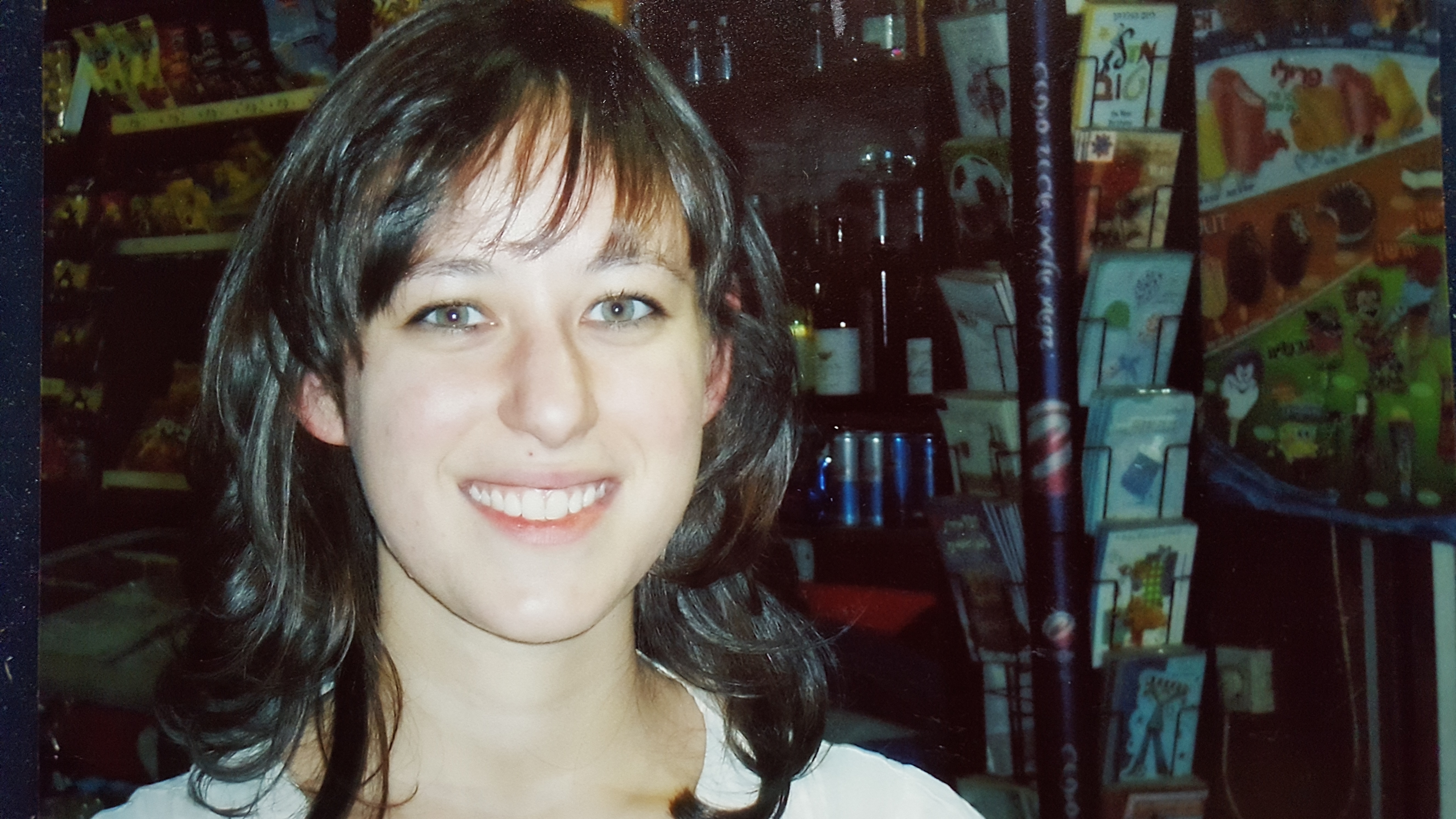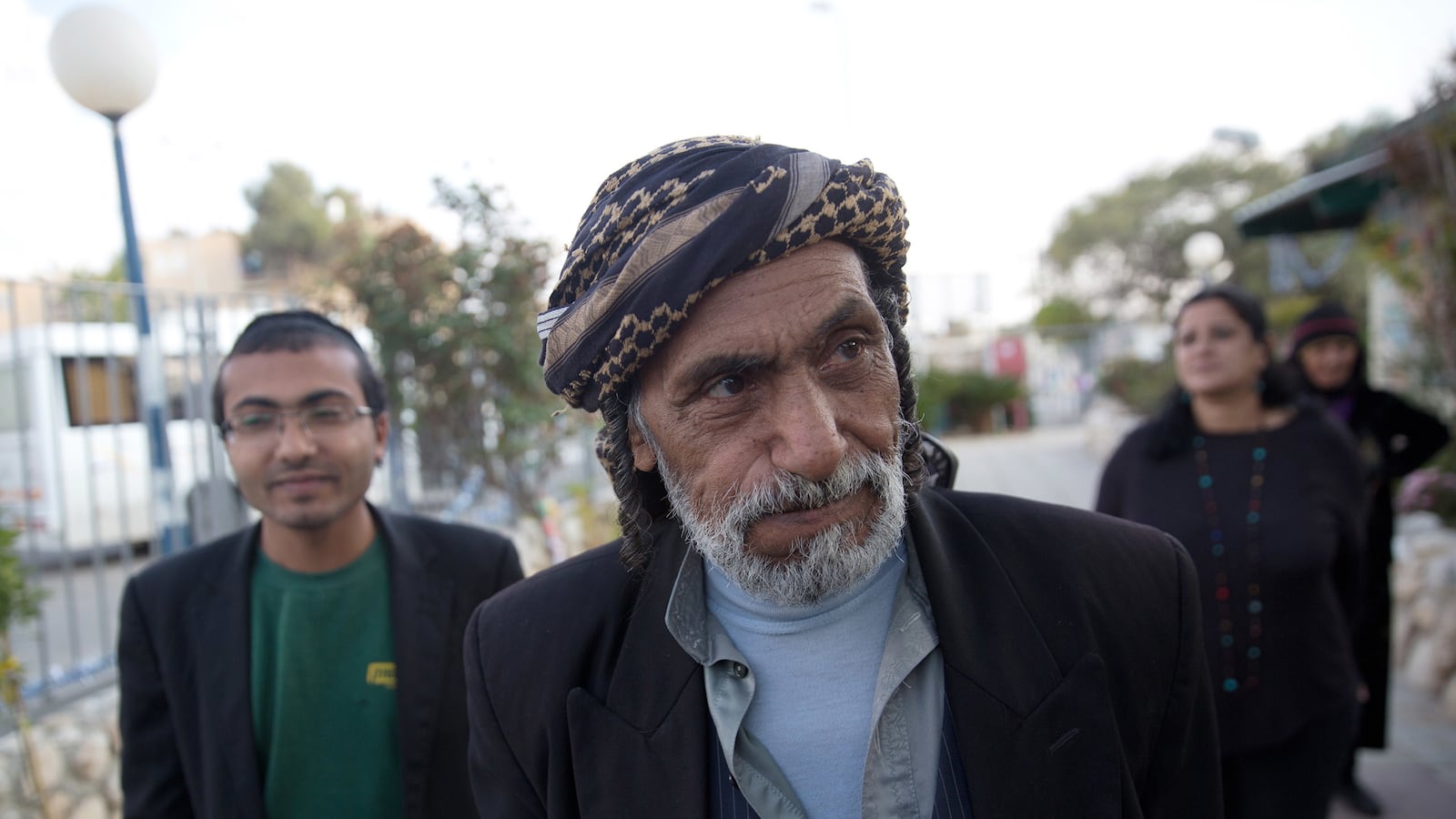BEER SHEVA, Israel — Nineteen Yemeni Jews are adjusting to life in Israel after a covert airlift brought them here in March, marking the end of their struggle to survive as a tiny minority in the crosshairs of hate amid the fighting in Yemen’s brutal sectarian civil war.
Most brought almost nothing with them for the long journey, but Sulaiman Dahari, a rabbi from northern Yemen, had proudly carried a duffel bag containing his community’s 800-year-old leather Torah scroll. As he showed it to The Daily Beast, he recited the Shehecheyanu prayer, which marks blessed and unexpected events.
“We have nothing left from our homes in Yemen,” said Dahari, speaking, like many of his Yemeni Jewish countrymen, in an ancient Hebrew dialect. The 2,000-year-old community had maintained its religious identity by reciting and memorizing religious Hebrew and Aramaic texts, and classes were held even in recent years, when only a handful of children attended.
Dahari said that when he met with representatives from the quasi-governmental Jewish Agency, which reportedly worked with the U.S. State Department to arrange the group’s travel out of Yemen, Dahari asked that Israel provide “the help that we need in order to hold onto our traditions and also to reunite with our brothers.”

The 17 Yemeni Jews who arrived on March 20 joined two other Yemeni Jews who had been flown in previously, according to the Jewish Agency. In Israel, Dahari is joining family members who are among the 200 Yemeni Jews who have trickled in over recent years, but Israel is also home to an older Yemeni population of roughly 350,000. They are the descendants of the 50,000 Jews brought in during Israel’s “Operation Magic Carpet” in 1949 and 1950, when riots in the Yemeni port city of Aden after the creation of the state of Israel left more than 80 Jews dead and Jewish-owned shops destroyed.
Violence against the Jews erupted again after the Arab Spring ouster of Ali Abdullah Saleh in 2012. He was an autocrat who had ruled Yemen for 33 years, but he had also served as a special guardian to the Jewish community, appearing frequently on state TV with rabbis. In 2007, he facilitated the relocation of the Jews of Saada to the gated enclave near the American Embassy known as Tourist City in the capital after they were expelled by Houthis.
The group of recent arrivals who are being put up in an immigrant absorption center here in the southern Israeli city of Beer Sheva said that life had become unbearably frightening in the shadow of radical Islamic terrorism spreading through Yemen. For more than a year, the country’s civil war brought chaos and strengthened groups who may be fighting each other but also find time to turn on the Jews. Iranian-backed Houthis rebels operate under the slogan, “Death to America, death to Israel, curse the Jews, victory to Islam.” The so-called Islamic State as well as the Yemeni branch of al Qaeda known as al Qaeda in the Arabian Peninsula (AQAP) have also benefited from the power vacuum in Yemen.
The 19 Yemeni Jews who arrived in the past month include 14 from the northern town of Raydah, once home to Souq al-Yahud, a thriving Jewish market, and a family of five from the capital of Sanaa. Both cities currently are under Houthi control.
Yemen’s Jewish community was once vibrant and well organized, and prided itself on being the largest and oldest in the Arab world, consisting of religious scholars, teachers, and community leaders who celebrated Jewish life publicly. But today, the handful of Jews left in the country pull back their side locks so as not to be recognized on the streets as Jews.
“There were many cases of kidnappings of Jews, and many people ended up staying within the small, low-rise houses of the Jewish quarter, afraid to go outside,” said Natan Roee, a historian and representative from the Jewish Agency. He added that the country’s Jews have for many years been subject to discriminatory laws that forbade them from wearing new or good clothes or from carrying the traditional daggers which they are famed for carving.

Some 40 or 50 Jews remain in Yemen who have refused the Jewish Agency’s offer to move. The newly arrived group was not allowed to speak of the details of their own journey lest they endanger those who stayed behind. Nonetheless, on March 24, the Jewish Chronicle reported that a Jewish Yemeni man and a Yemeni airport employee were arrested by authorities due to the publicity surrounding the 800-year-old Torah scroll, which Yemeni authorities said had been illegally smuggled out of the country.
“Those who stayed wanted to tend to their families, or to see if they could wait to sell their homes or properties at a better price,” said Dov Levitan, an expert on Yemeni Jewry and professor at Bar Ilan University. He said that the Jews of Yemen have for decades met animosity from their Muslim neighbors, “But when people ask why the Yemeni Jews didn’t come earlier, it could also be connected to the ‘Jewish syndrome’—the hope that better times could still come.”
In retrospect, that does sound like cockeyed optimism. In 2008, militants detonated a car bomb outside the U.S. Embassy in Yemen’s capital of Sanaa, killing 16 people, and three months later, a lone gunman shot a Jewish teacher in Raydah. In 2012, Yehiya Zindani and his 53-year-old father Aharon visited the nearby market to buy vegetables, when they were approached by a Yemeni Muslim who accused Aharon Zindani of practicing witchcraft. The man stabbed him from behind in the neck and stomach and four hours later Aharon Zindani succumbed to his wounds in hospital.
“The killer said that he was going to go to the Garden of Eden because he had killed a Jew,” said Yehiya Zindani, one of the new arrivals. He added that although the killer was imprisoned after the attack, it is unclear if he is still locked up or roaming free, “since the war has turned everything upside down.”
Like many of his fellow travelers, Yehiya Zindani said he was thrilled to be in Israel and see families publicly celebrate Jewish holidays.
“We only celebrated our holidays there quietly; there we were prisoners,” he said.
Beyond the anxieties and security problems, however, 18-year-old Zion Dahari, said that he made the choice to leave for Israel four years ago, after many of his friends had made the trip, because of economic reasons. “I want to study, find the right job, and build a life,” he said.
But coming here has also required a cultural adjustment, he said, explaining that Yemeni families often marry off their children as teenagers, and Yemeni women are expected to maintain their modesty by covering their hair in a headscarf, or, sometimes, their whole faces except the eyes, in a full niqab.
While the Jewish Agency has announced that it would continue to help any individuals who would choose to come to Israel, it also said that this was likely the last group.
Prime Minister Benjamin Netanyahu, who welcomed the group in Jerusalem, said, “For many years we have thought about bringing you, and with God’s help it is over.”





